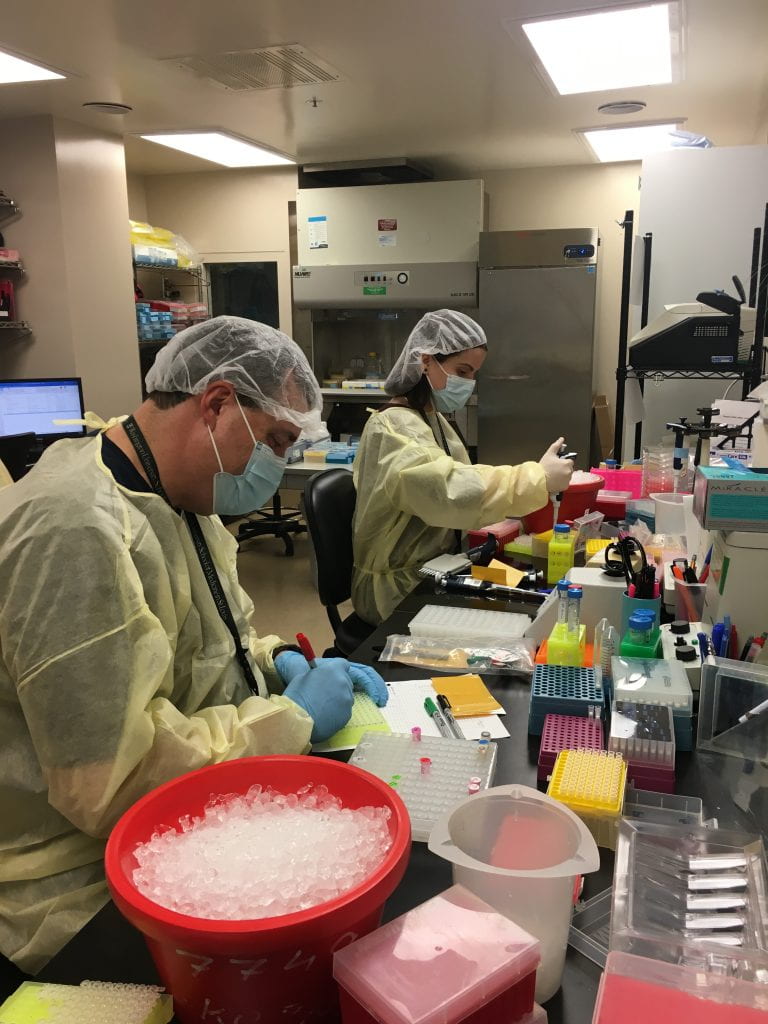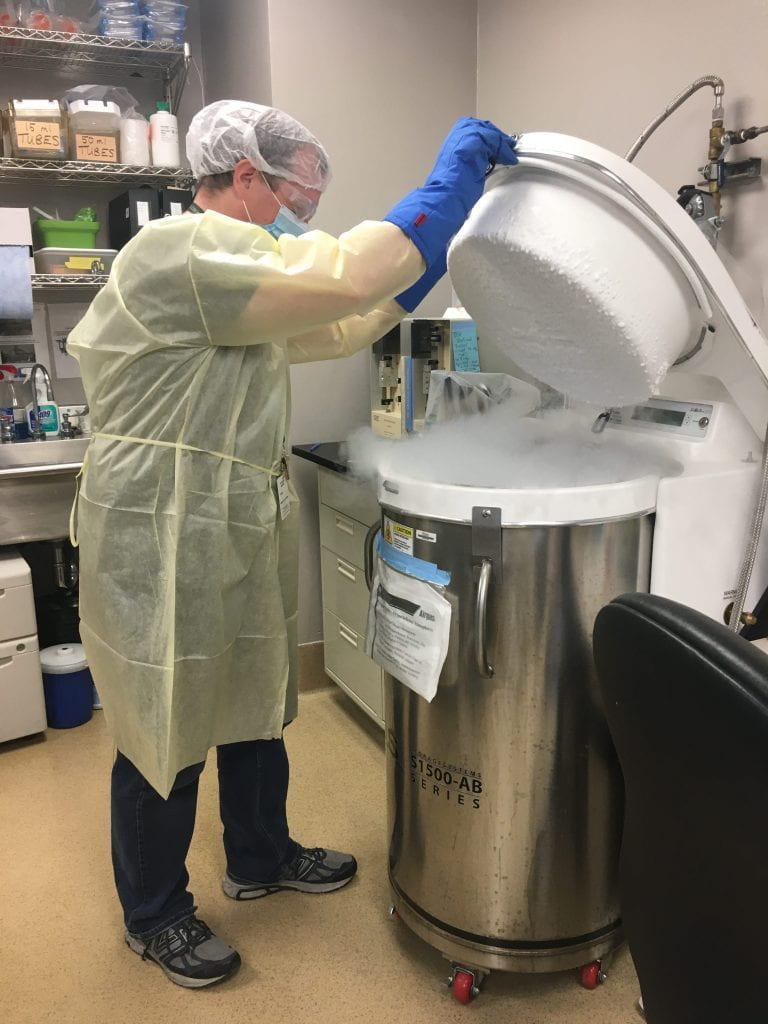What is the Mouse Genetics Core?
Washington University scientists are finding new treatments for human diseases. Research for these cures involves learning how the body functions and how diseases affect the body. Animals are used for some of these studies where human patients, computer models, or experiments in cultured cells cannot provide the needed information. Techniques have been developed to make mice especially useful models for human disease. These techniques are difficult to perform, and the Washington University Mouse Genetics Core helps scientists with these techniques. While mice and humans look very different, important physiological and molecular functions are similar between the two. Results can be obtained from experiments performed in mice that directly apply to human disease, allowing experiments to be performed that would not be ethical or practical in humans. Experiments with mice are frequently more feasible than in humans because of the small size and short generation time of the mouse.
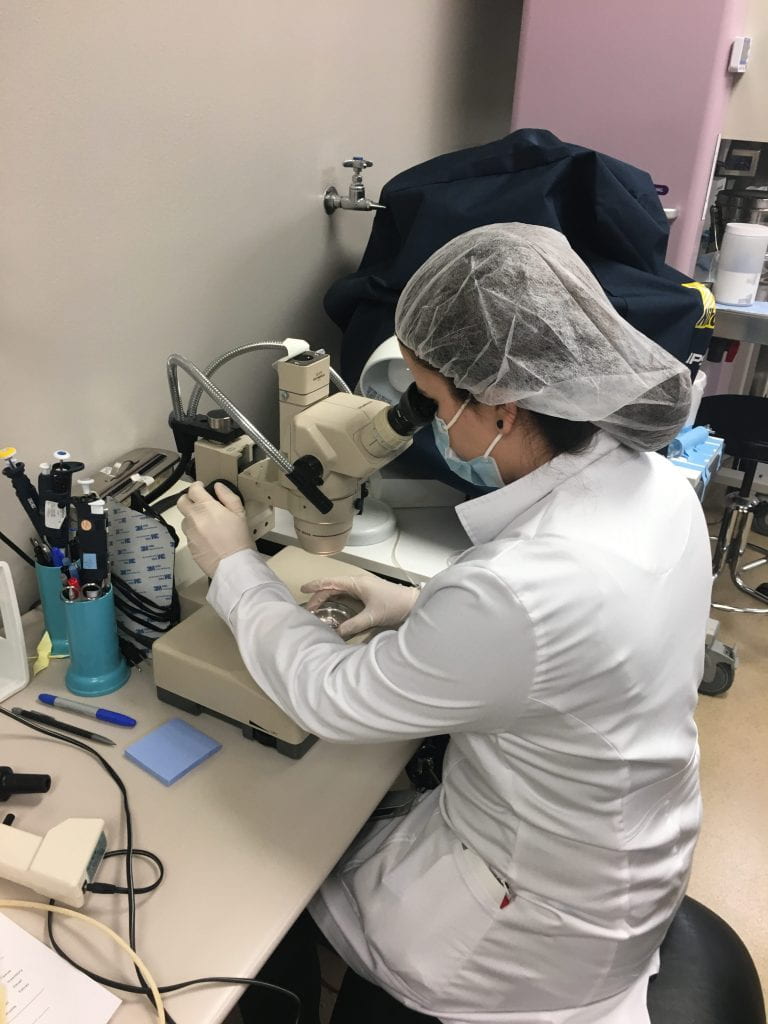
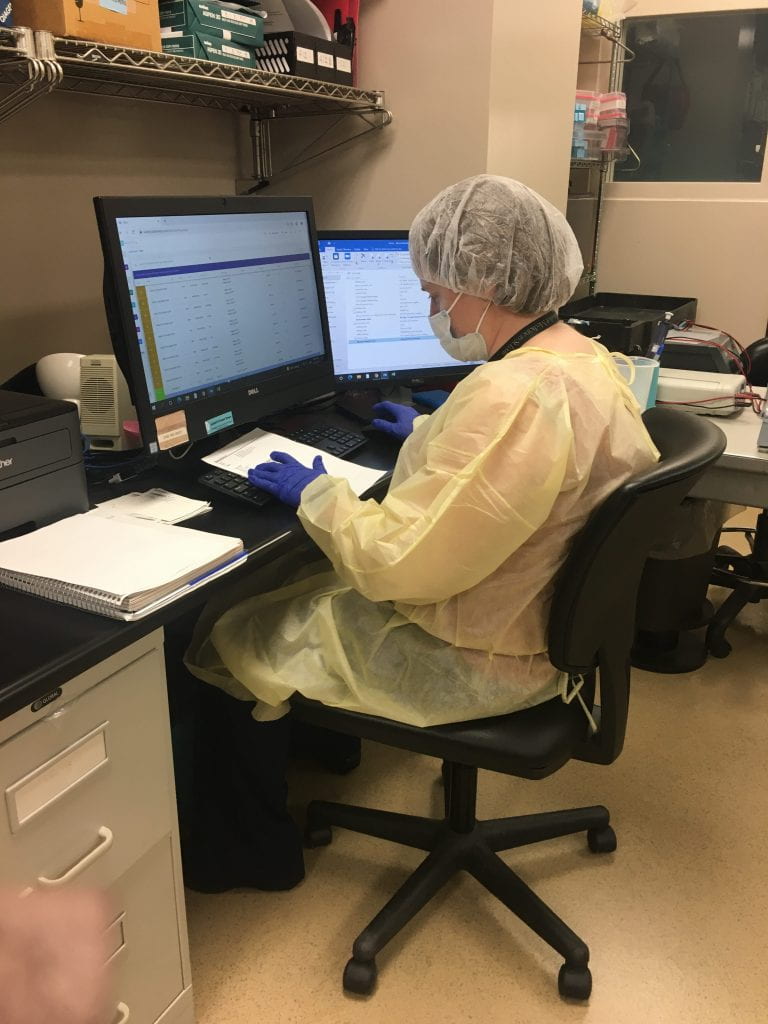
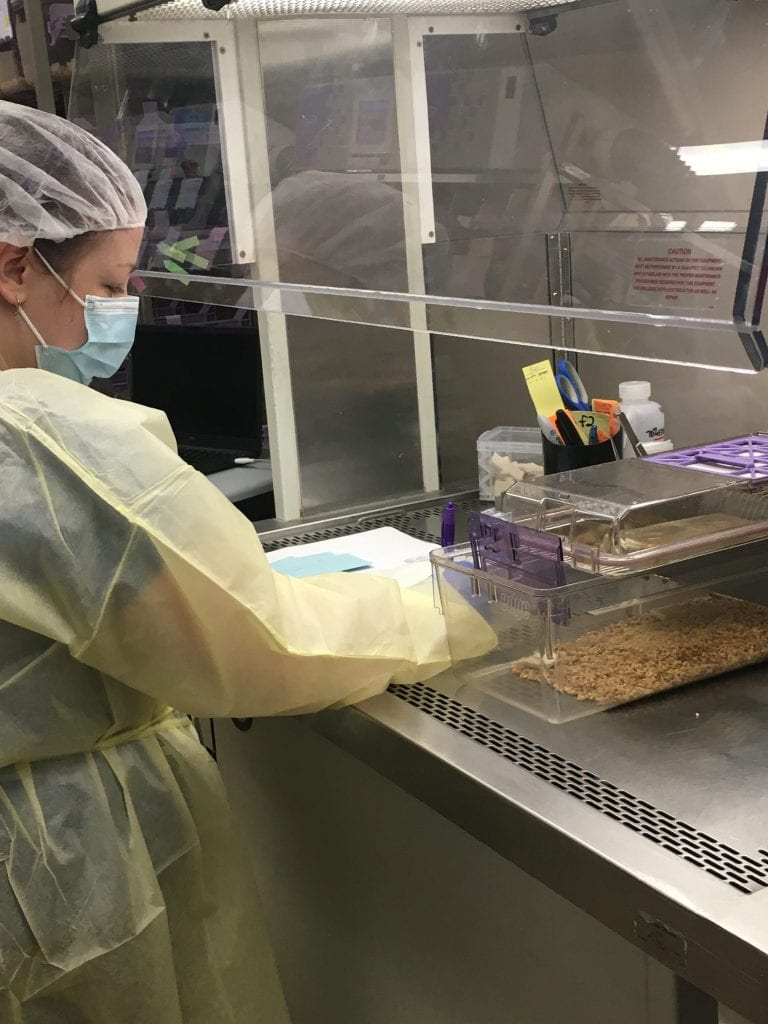
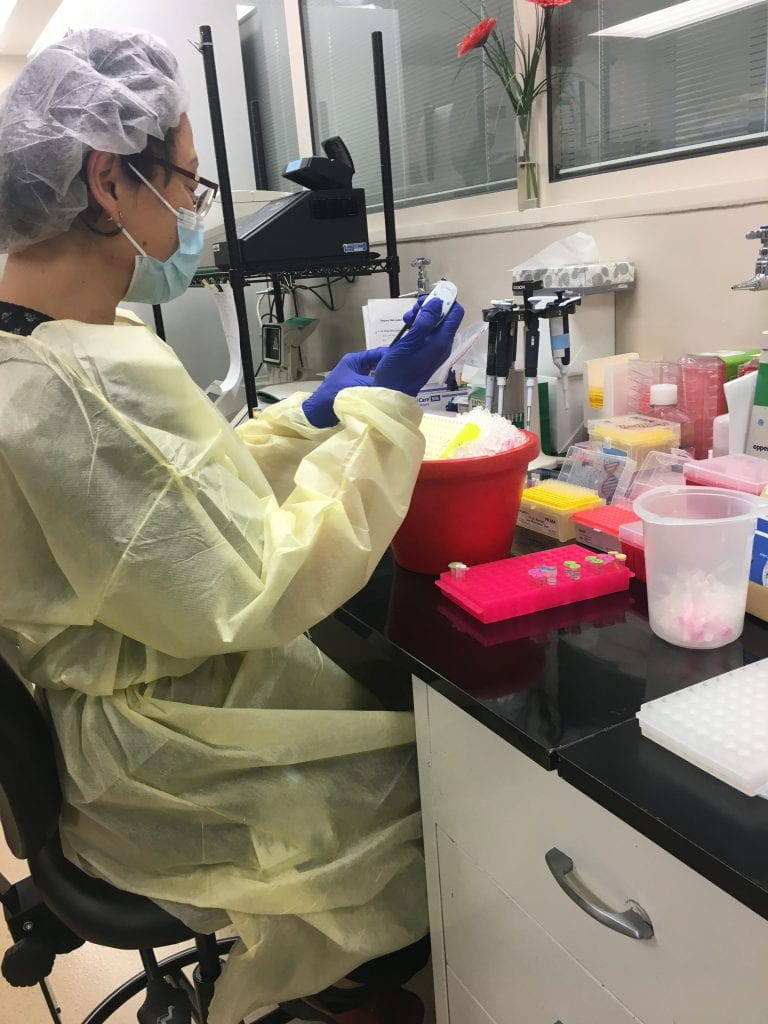
Techniques for making the mouse a particularly useful model of human disease involve manipulating the mouse genome, which controls formation and function of the mammalian body. The genomic sequence in every individual is different, except in identical twins. Some individuals are more likely to develop a disease such as diabetes or cancer due to differences in their DNA sequences. Errors can also occur when DNA is copied into a new person, resulting in birth defects. One useful aspect of the mouse as an experimental model is the existence of inbred strains. As the name implies, inbred strains are created by inbreeding until all the animals in the strain are genetically identical. The ability to obtain large numbers of genetically identical mice allows experiments to be performed without the complication of individual differences.
It is now possible for scientists to make changes in the mouse genome, and this technique makes the mouse a powerful tool to investigate human disease. Mutations that cause birth defects in humans can be created in mice to study possible cures. DNA sequences that lead to disease or that control the development and function of the body can be identified and their function tested. Creating alterations in the murine genome is slow and difficult, but the studies done in these animals provide important information that is available in no other way. The Mouse Genetics Core assists scientists in the manipulation of the mouse genome, and in breeding of the mutant animals, which they in turn use to study potential treatments and cures for human disease.
